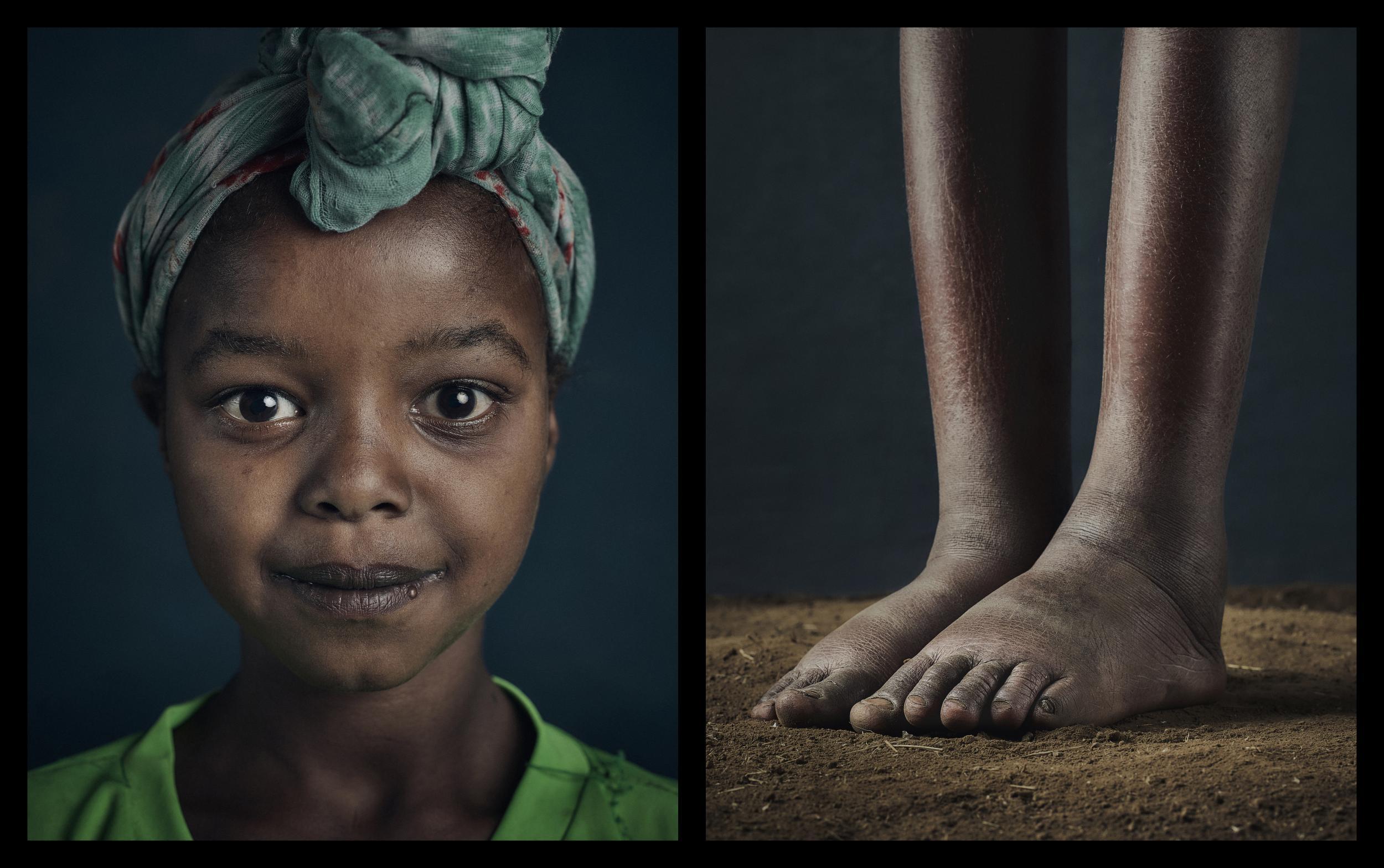Podo: The invisible tragedy
Dr Paul Matts on why this misunderstood skin disease needs urgent attention

From ancient times, we humans have put those who look different outside city walls, because they don’t conform to our inward notion of outward normality. More than any other disease, skin disorders have the greatest potential to drive “otherness” and, thus, stigma, ostracism and associated loss of self-esteem and confidence. The truth is that skin speaks long before the mouth.
In the UK, even relatively-simple dermatological conditions such as acne can cause profound loss of perceived self-worth and, tragically, a significant number of young adults commit suicide every year as a result. While we are all familiar with acne, unknown skin disease in resource-poor settings often has more sinister consequences.
In Ethiopia alone, at least 1.6 million ordinary people are living lives of quiet desperation, the victims of a skin disease known as Podoconiosis (commonly known as “Podo”; from the Greek words for “foot” and “dust”). Podo is a form of elephantiasis, where a failure of the lymphatic system in the lower legs leads to grotesque swelling and deformity.
Unlike the most common form of elephantiasis, Podo is not caused by injection of filarial worm larvae by a feeding mosquito host. Rather, it is caused simply by barefoot farming on certain types of ancient, red volcanic soil.
This nutrient-rich soil is both the giver and taker of life. On the one hand, it generously bequeaths a living to around 11 million subsistence farmers in the central highlands of Ethiopia. On the other, it quietly, cynically robs life from more than 10% of those that work it, because of its biological reactivity.
The disease starts with the mundane – thick dry skin on the sole, callus born from years of bare-foot contact with a challenging environment. This skin cracks and splits, allowing invasion of soil and microbes. Infection is routine.
Specific fractions of volcanic soil, the mulch of magma spewed from volcanic vents in Ethiopia’s violent geological past, are inherently damaging to human tissue. The lymphatic system in the feet and lower legs absorbs this soil and, effectively, commits slow suicide. Years of self-harm to the lymphatics in the legs and feet eventually results in full-blown elephantiasis.
It is impossible to convey the human tragedy of Podo in a few words. First of all, there is the sheer visual offence of slim, sinewy Ethiopian legs, which belong on a middle-distance race-track, ballooned to caricature, cartoon proportions. For those who have suffered with Podo for years or decades, this swelling often transforms to “fibrosis”, abnormal multiplication of connective tissue, resulting in hardened, knotted lumps which sound like wood when tapped with a finger.
Then there is the smell of Podo, the sickly stench of stubborn infection, an odour which enters a room before their physical presence. Finally, one notices the eyes… darkened, bereft of hope, turned away through embarrassment and shame. Podo sufferers are routinely mistaken as infectious, cursed by god, possessed by spirits.
Wives are evicted, children live with the family’s livestock, men wither. Forced from home, village and community, many starve or take their own life. Because the majority of those with Podo are of productive age, it is estimated that Podo alone causes Ethiopia to lose almost a quarter of a billion dollars annually through work-force erosion.
This month, a gallery on London’s South Bank hosts a remarkable exhibition, by portrait photographer Matthew Joseph, of images of those with Podo, captured in unforgiving Medium-Format on a field-trip to remote Southern Ethiopia in late 2018.
This is a portrait exhibition with a difference, however. Face and feet will hang side-by-side. One would never associate the high-cheekbones and handsome features with the juxtaposed horror. Which is the point.
Without doubt, this exhibition is challenging, but it is also charged with hope. Joseph gives voice and face to those caught in this silent, invisible tragedy and points to the first, vibrant green shoots of efforts made to eradicate this disease from Ethiopia within our lifetime.
More detail about the exhibition can be found here oxotower.co.uk/events/podo
Dr Paul Matts is founder of Action on Podo. He is a PhD Biologist, a Victor Mills Research Fellow with Procter & Gamble, Visiting Professor to the London College of Fashion, Chair of the Cosmetics Europe Trade Association Expert Team “Regulatory Aspects of Sunscreen Products” and a Fellow of the Royal Society of the Arts and Royal Society of Chemistry.
Join our commenting forum
Join thought-provoking conversations, follow other Independent readers and see their replies
Comments
Bookmark popover
Removed from bookmarks